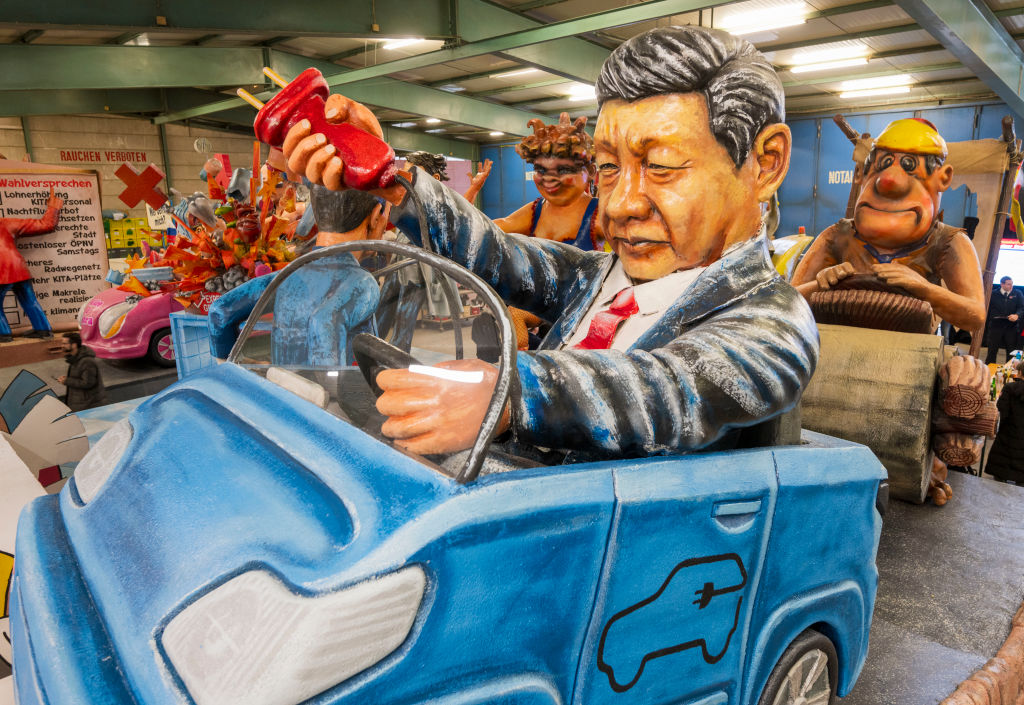In a hugely significant vote this morning, EU’s trade diplomats have allowed the imposition of hefty new tariffs on Chinese electric vehicles as part of a move seen as a key marker for future EU trade policy.
For China-friendly Hungarian leader Viktor Orbán, the raising of EV tariffs to as high as 45% means an “economic cold war”. He added today that “if this continues, the European economy will die.” Orbán’s dramatic rhetoric was likely intended as a repudiation of his French counterpart Emmanuel Macron, who earlier this week claimed the EU “could die” for the opposite reason — by not reforming its “classical” free trade approach in response to aggressive subsidies in the USA and China.
New EV tariffs are part of the more bullish approach encouraged by figures such as Macron and European Commission President Ursula von der Leyen. They are intended to bolster Europe’s flagging automotive industry amid the switch to Net Zero; major manufacturers such as Volkswagen are threatening to shutter EV production in European plants as they are outstripped by cheaper Chinese rivals — and Tesla — on EV sales.
Today’s vote on tariffs was divisive, with five countries voting against and 12 others abstaining. In the end, the move to curb Beijing’s EV dominance only gained clear support from a minority of countries lacking significant exposure to the Chinese car market. The tariffs were, on the other hand, actively opposed by countries suffering far more from the slump in automotive manufacturing.
Germany, the EU’s automotive powerhouse, voted against the tariffs as Chancellor Olaf Scholz fears “harming ourselves” given the potential for retaliatory measures from Beijing. Berlin is in a bind on EV production; car manufacturers being undercut by cheap Chinese rivals are, simultaneously, highly dependent on the Chinese export market. Cars make up the lion’s share of German exports to China, so retaliatory measures could harm manufacturers just as much as cheap competition on the EU market.
As with Russia prior to the invasion of Ukraine, the EU — particularly Germany — appears to be locked in a toxic economic relationship with an unfriendly power. Beijing has hijacked the green energy transition to undermine key European industries, and Chinese state subsidies keeping EV prices “artificially low” are an example of aggressive policies which Macron believes justify a bullish response. “When both the US and China do not respect the rules, we should not be the only one in the room to just abide by the rules,” he declared on Wednesday.
If such a tit-for-tat approach becomes the norm, it would be hard not to agree with Orbán’s “cold war” characterisation of the EU-China relationship. Yet the spat over EVs has exposed Brussels’s Achilles heel on trade. As one French senator said of the disagreement with Germany: “we just don’t have the same interests.” Member states’ conflicting priorities pose fundamental problems in a single market with shared trade controls. Amid the potential for an escalating trade war with China, the unwieldy EU’s ability to compete is far from clear.










Join the discussion
Join like minded readers that support our journalism by becoming a paid subscriber
To join the discussion in the comments, become a paid subscriber.
Join like minded readers that support our journalism, read unlimited articles and enjoy other subscriber-only benefits.
Subscribe